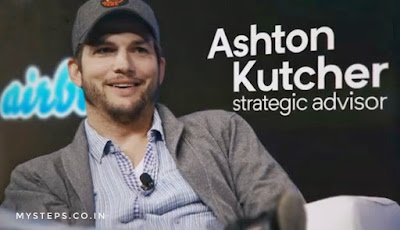 |
| Airbnb.com |
11 years, Airbnb went from being a company that rents 3 mattresses to a company that counts 150 million users, arranges 2 million Bookings per day, and whose value is estimated at $38 billion.
To help you understand how Airbnb achieved such a huge success, we’re taking you back to 2008, when Airbnb provided the people with a clever way of earning extra money off of their homes as the housing market was crashing.
Once, we were told to stay away from strangers, to never give out personal information on the internet, and never ever go inside someone’s house you don’t know. Now, we all connect with people we’ve never met online, get their addresses, and sleep in their homes. All thanks to the way Airbnb changed how we think about travel. Airbnb is one of the biggest unicorn businesses of the modern age, creating a sharing economy centered around renting out rooms of your home to strangers.
let’s explore how it all happened. How did Airbnb, a $38 billion company with more rooms than all of the largest hotel chains combined, become the giant that it is today? Even more remarkable, how did Airbnb use the timing of the 2008 global recession to create a new opportunity for people around the world to make money?
 |
| Joe Gebbia & Brian Chesky |
When Joe Gebbia and Brian Chesky were living in San Francisco, they both wanted to do something that would change the world. Having quit their jobs, Joe and Brian committed to working on their Next Big Thing. But two things happened almost simultaneously that pushed them in a new direction they hadn’t anticipated.
- First, they were notified that their rent was increased by 25%, due next month. For 2 unemployed design students, this was a looming deadline that would almost certainly make them homeless.
- Second, they were made aware of a conference coming to San Francisco for designers. But in big letters across the bottom of the flyer, it stated that “All Hotels Were Sold Out”
Disappointed that people who wanted to attend the conference couldn’t come, as well as desperate for a way to make a few bucks, Joe suggested that they offer their place to anybody who wanted to stay on the airbeds they had in the closet.
Not long afterward, they launched their own website, AirbedAndBreakfast.com. And for $80, they offered designers a place to stay for the weekend’s event. They included travel guides to the city they loved so much and made the guests from around the world feel like locals. After the three guests that booked with them left, Joe and Brian remarked that they had such a great time hosting that they wanted to create a way to offer that experience to more people.
Bringing on a specialist in coding and technology, Joe and Brian decided to target the next big conference, South By Southwest in Austin, Texas. They reasoned that it worked so well with the conference in San Francisco, surely it would have the same result at the next big event.
But it did not. Only 6 people created listings on their site and only two bookings were registered, one of them being Chesky himself. Undeterred by their first failure, they looked to expand the concept. Maybe this wasn’t a conference and festival business like they first imagined it to be.
Maybe...this was a travel business. Looking to capitalize on that new direction, and finding a wave of national interest to ride, they settled on the DNC speech coming up in Denver by Barack Obama. The year was 2008 and the candidate was making big ripples in the political scene. The city expected to receive 100,000 visitors to see Obama, but it only had 30,000 rooms.
There was an immediate housing crisis, and AirbedAndBreakfast.com decided that they could come to the rescue. And so, financed just by their credit cards, Joe and Brian launched their site again, but this time received national and international attention for their site. In just 4 weeks, they went from Zero listings to over 800 listings. But after the speech, the site’s traffic dropped again. Using this wave of media interest, they started to meet with investors. But of the 20 investors they approached, 10 sent replies, just 5 agreed to meet with them, and not a single one invested in their company. It seemed as if the walls were closing in. Discouraged by the tens of thousands of dollars of crippling debt, Brian and Joe brainstormed ways to self-finance this business they were certain would take off.
Building off of the idea that had already worked, they wanted to use the political atmosphere around the upcoming 2008 election as a way to get some more money coming in the door. So, Joe and Brian came up with a random, yet innovative idea:
Politically-focused cereal boxes. They called their cereal Obama-O’s: “The Taste of Change” and “Cap’n McCain: A Maverick in Every Bite.” They took the idea to an illustrator who printed 1,000 boxes in all. 500 for each political candidate. They then bought regular cereal from their local supermarket, put it into their new boxes, and created a website to start selling their new invention. But because they only had 1,000 boxes, they decided to number them, marketing them as “limited edition” collector's items. By doing that, they were able to sell each box at a ridiculous price of $40 a pop. Shockingly, it worked.
They ended up selling over 800 boxes and generating over $30,000 in profits. In addition to clearing a bunch of their debts, the branded cereal boxes also caught the eye of Y-Combinator’s co-founder, Paul Graham. The start-up accelerator is famous in the valley for financing big names, but Joe and Brian’s home-sharing business was, at first, repulsive to Graham. In their first interview, Graham even remarked “You mean people use this? That’s weird”. But it wasn’t the business idea that sold Graham.
 |
| Y Combinator.com |
Rather, Graham agreed to take them on because of their self-starting attitude and their hustle and grit in selling simple cereal boxes to make $30,000. If they could sell cereal for $40 a box, they could probably figure out a way to make the business work. Y-Combinator’s initial $20,000 investment opened the door to other investors, soon raising over $600,000 in the first round of funding.
 |
| Airbnb.com |
Just like Joe and Brian at the beginning of their venture, people were desperate for ways to make extra income when the job market was crashing just as quickly as the stock and housing market.
Incredibly, Airbnb’s fortuitous timing helped change the perception of housing from a liability to a means of making extra money. When people say that the model worked, they flooded on to this new platform. By taking a cut of every transaction, the business model depended on more listings to succeed. But there was a problem. Most hosts didn’t know how to market their own homes. And as a result, Airbnb was making just $200 a week in revenue.
So, they offered a free photographer service to every single host on their site to improve the images shown on their listings. By working with the hosts directly, Joe and Brian learned how to redesign the site and improve the inefficiencies of the business.
In 2010, Brian would go on to live exclusively in Airbnb for many months while employees crowded him out of his own home. To this day, he still recalls that time as pivotal for understanding the experience of hosts using his site. And when international listings started to increase, investors sat up and noticed Airbnb. This time, instead of the founders calling the investors, venture capital firms were knocking at their door.
 |
| Ashton Kutcher |
Later that year, they raised a further $7.1million from VC firms. The next year, celebrity investor Ashton Kutcher invested a significant amount of money into the rising San Francisco startup and secured a spot on the board as a strategic advisor.
It was around this time that Fiji Island was listed, a private 5-acre island with water sports and a private chef in the South Polynesian Sea. At this point, Joe was personally reviewing every single listing, and when he saw that come in, he knew that Airbnb would be huge.
By early 2011, Airbnb had hit the 1-million listing mark and had homes in 89 countries, including a boat, a treehouse, an 11-century manor in the English countryside, and a deluxe villa on the beaches of Bali. 5 months later, the number of users had hit 2 million. And by the end of the year, they had 5 million users registered on their site. By June of 2012, that number had increased again to 10 million. They’ve grown now to boast 150 million users from over 100,000 cities. On any given night, 2 million people are staying in an Airbnb. And with an estimated valuation of $38 billion.
Be smart














0 Comments